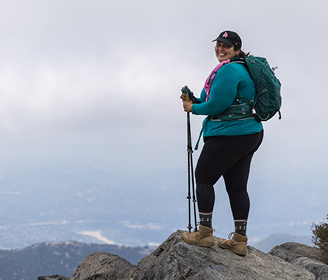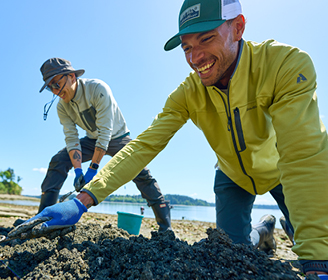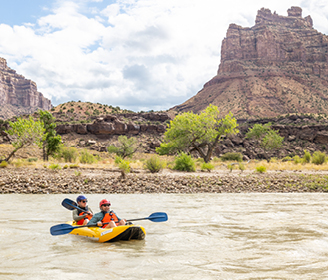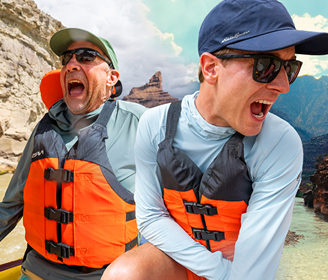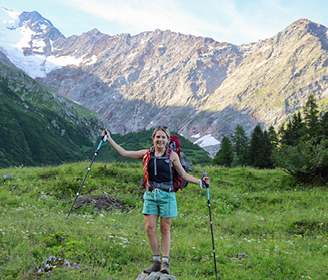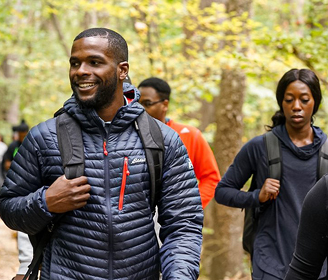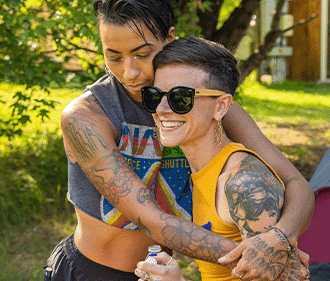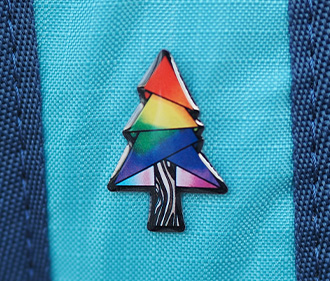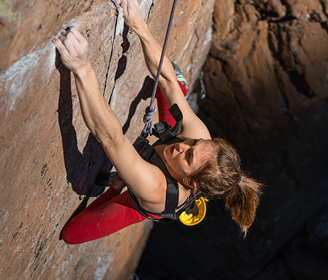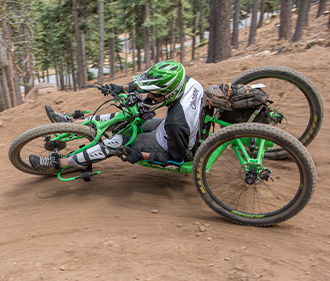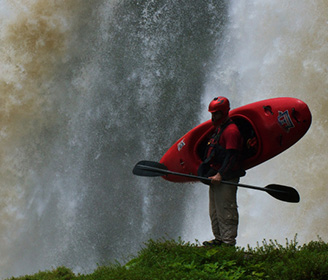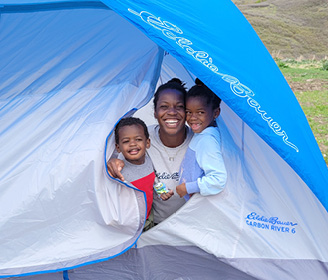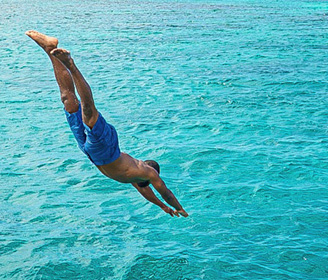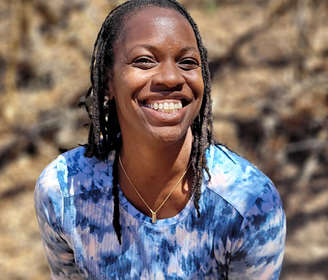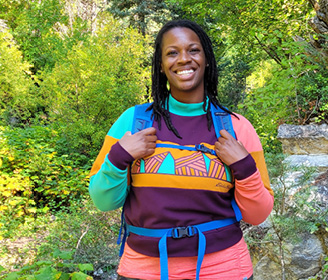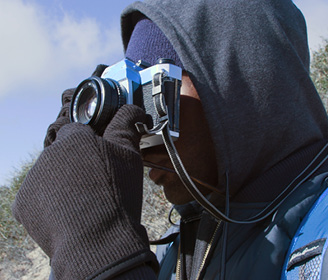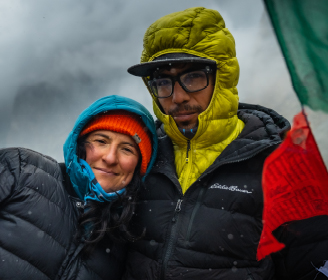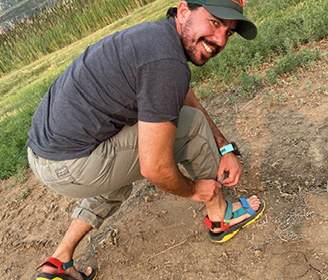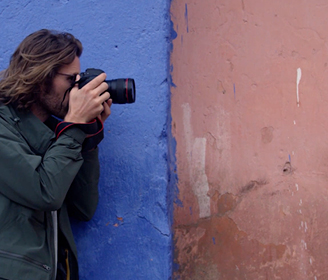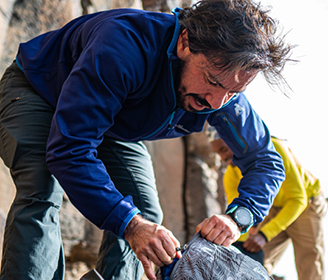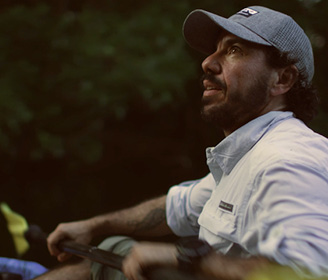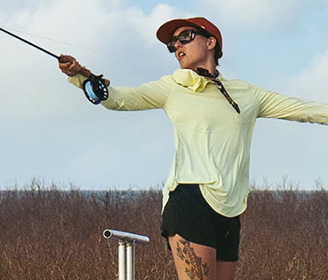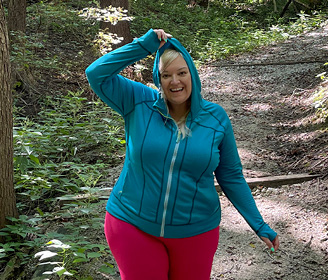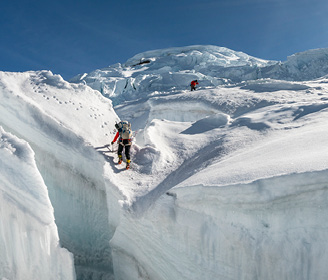As the founder of Unlikely Hikers and one of Eddie Bauer’s One Outside Guides, Jenny Bruso is working to make the outdoors more accessible for everyone – especially those who are underrepresented in the outdoor space. Below, you’ll hear from Jenny on why listening and believing other people’s experiences is often the first step to becoming a good ally – not just during Pride month – but all year long.
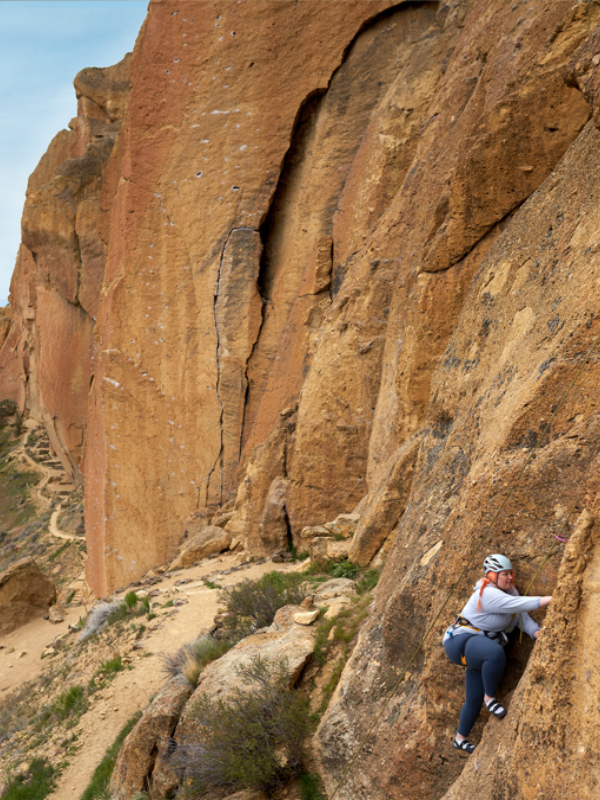
We’ve all heard and maybe even expressed the sentiment “the outdoors is for everyone,” and while it’s the literal truth, experiences of othering while doing the activities we love sends the opposite message.
Many people believe getting outside is as simple as showing up, but there are a number of factors that make this easier for some than others.
Barriers to access run deep and show up in a number of ways. Addressing these issues requires many approaches, but it all starts with believing us when we share our experiences of harm and othering outside.
Often, when we share these experiences they are received with disbelief, even anger. We are either asked questions that imply we are not perceiving a situation correctly or that we possibly caused the situation, or we are directly told we are wrong about it altogether, even accusing us of lying.
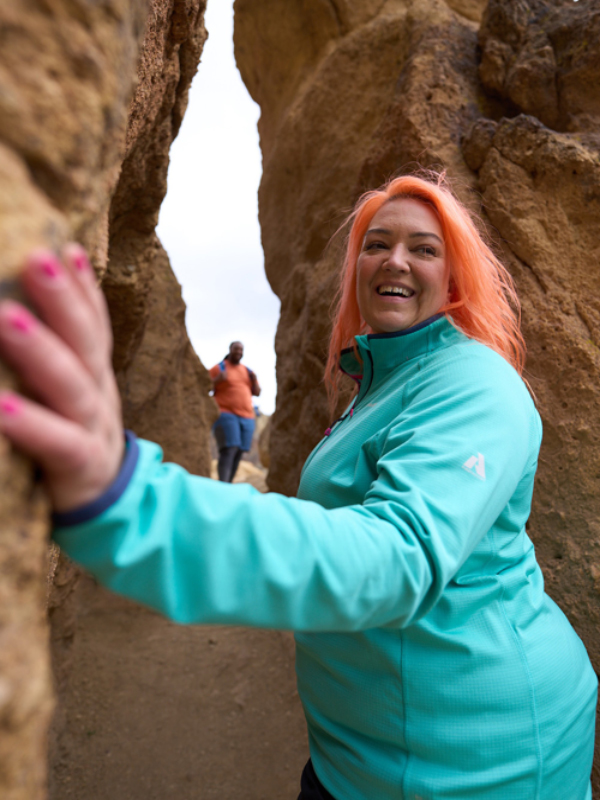
Just because you haven’t had these experiences, doesn’t mean they don’t happen.
Outdoor culture has, for a long time perpetuated a very narrow definition of who is outdoorsy, generally meaning people who are white, cisgender, heterosexual, financially privileged, able-bodied and thin. Representation is an invitation, so this narrow depiction of an outdoorsperson sends a subconscious message to those who don’t fit this that they don’t belong. Similarly, this representation is subconsciously internalized by folks who do fit all or most of these identities, which sometimes results in a sense of entitlement that creates hostility in these environments.
This hostility shows up in a number of ways:
- Scrutinizing the behavior of folks who are seen as other
- Uncomfortable questioning
- Being ignored in outdoor retail stores
- Intimidation
- Assumptions that we don’t know what we are doing or are ill-prepared
- Assumptions that we are the ones who degrade trails and litter
- and, most often, hateful comments on social media.
Beyond issues of representation, to achieve real inclusion, other common barriers to access include, but are not limited to:
- Not having reliable transportation. Should only people with cars be able to access our beautiful public lands?
- Costly park fees
- Lack of accessible trails and facilities for folks who use mobility aids
- Costly gear for the most comfortable and safe experiences possible
- Gear that doesn’t address the design needs of Disabled outdoorspeople
- Clothing that doesn’t address the needs of plus-size adventurers
Strong allyship begins with listening, understanding, and not negating people’s outdoor experiences even though you may not have experienced something similar. Only then is it possible to take the necessary steps to combat those barriers. So open your ears, have some empathy and start a conversation with your peers.
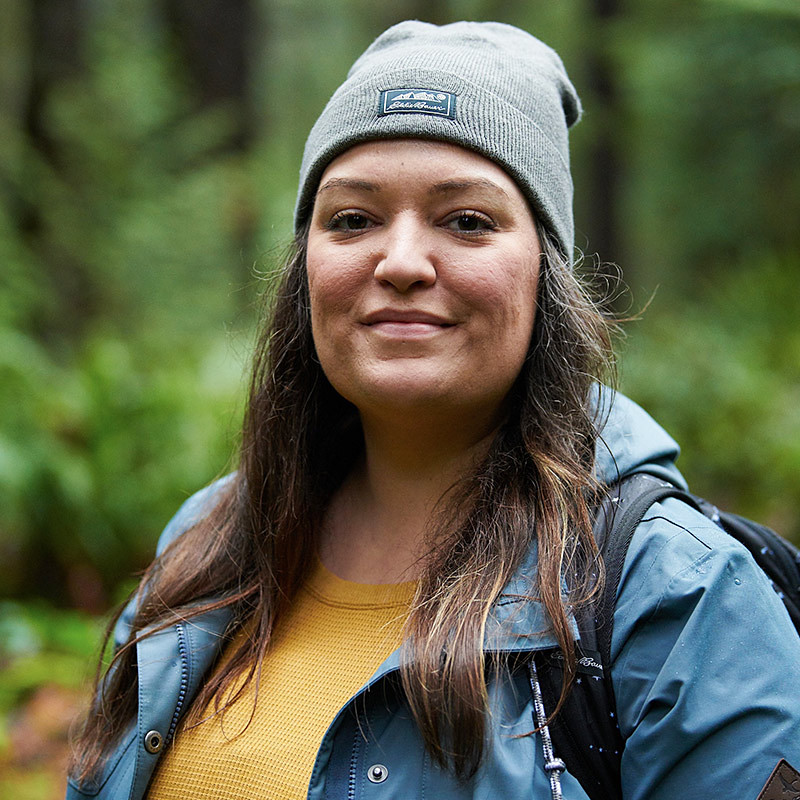
JENNY BRUSO
Eddie Bauer One Outside Guide
Jenny Bruso queer, plus-size, writer, hiker, group hike leader and founder of Unlikely Hikers. A late bloomer to the outdoors, it wasn’t until 2012 that she went on the hike that would change the course of her life from career waitress to outdoor leader and advocate for underrepresented outdoorspeople.


